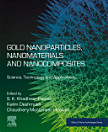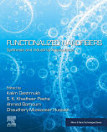Phosphorous Nanomaterials: Synthesis, Properties, and Multifaceted Applications
About this ebook
About the author
Gautam Patel obtained PG from Institute of Science and Technology for Advanced Studies and Research (ISTAR), Vallabh Vidya Nagar and Doctoral degree from the M. S. University of Baroda, India. He is the Head and an Associate Professor at the Chemistry Department, Parul Institute of Applied Science, Parul University, India. His area of specialization is organic synthesis, green chemistry, nanosciences and nanotechnology. He has 3 patents to his name.
Dr Kalim Deshmukh is a senior researcher at the New Technologies-Research Centre, University of West Bohemia, Pilsen, Czech Republic. He has over 20 years of research experience working with a wide variety of nanomaterials and polymeric materials, especially polymer blends, nanocomposites, and nanohybrids for various applications. His research interest is mainly focused on the synthesis, characterization, and property investigations of novel polymer nanocomposites reinforced with different nanofillers, including various nanomaterials including carbon-based materials such as carbon black, carbon nanotubes, graphene and its derivatives and MXenes for energy storage, energy harvesting, gas sensing, EMI shielding and high-k dielectric applications.
Chaudhery Mustansar Hussain is an Adjunct Professor and Director of Laboratories in the Department of Chemistry & Environmental Sciences at the New Jersey Institute of Technology (NJIT), United States. His research focuses on nanotechnology and advanced materials applications, environmental management, analytical chemistry, and related industries. Dr. Hussain has authored numerous papers in peer-reviewed journals and is a prolific book author and editor, including scientific monographs and handbooks in his fields of expertise.
Dr. S. K. Khadheer Pasha obtained his M.Sc. degree in Physics from Osmania University, followed by an MPhil degree from Anna University, and PhD degree in physics from the Department of Physics, Vellore Institute of Technology (VIT), India. He is currently working as a Senior Assistant Professor in the Department of Physics, VIT-AP University. He has about seven years of teaching and 12 years of research experience. His research is mainly focused on the synthesis of nanocomposite materials for various applications such as energy storage, gas sensors, and EMI shielding.






